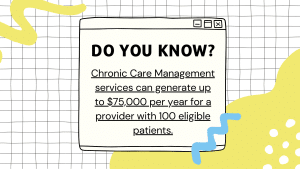Introduction
Understanding the Significance of CPT Codes
In the realm of medical billing and coding, CPT codes play a pivotal role in ensuring accuracy, transparency, and efficiency. These codes, short for Current Procedural Terminology, serve as a standardized language that healthcare providers use to communicate the services they have rendered to patients.
Importance of Mastering CPT Coding in Medical Billing
Mastering CPT coding is crucial for healthcare providers, billers, and coders alike. It directly impacts the reimbursement process, affects revenue cycles, and influences the overall financial health of medical practices. Therefore, understanding and correctly applying CPT codes is essential for smooth operations and financial stability within the healthcare industry.
What are CPT Codes?
Definition of CPT Codes
CPT codes are alphanumeric representations assigned to medical procedures, services, and treatments.
Developed and maintained by the American Medical Association, these codes facilitate the systematic documentation and billing of healthcare services.
Origin and Development of CPT Codes
Originally introduced in 1966, CPT codes have evolved over the years to accommodate advancements in medical technology, changes in healthcare practices, and the introduction of new procedures.
Today, they serve as a comprehensive system for coding medical services across various specialties.
Role of CPT Codes in Healthcare Communication
CPT codes serve as a universal language within the healthcare industry, enabling clear and concise communication among healthcare providers, insurance payers, and regulatory bodies. They ensure that all parties involved have a standardized understanding of the services rendered and the associated billing.
Categories of CPT Codes
Category I Codes: Widely Accepted Services
Category I codes encompass commonly performed medical procedures and services. They form the foundation of the CPT code set and cover a broad spectrum of healthcare specialties and treatments.
Category II Codes: Auxiliary Monitoring and Performance Measurement
Category II codes are supplementary codes used for performance measurement and quality reporting.
They provide additional data points for tracking patient outcomes and evaluating healthcare delivery.
Category III Codes: Temporary Codes for New Technology
Category III codes are temporary codes assigned to emerging technologies, procedures, and services.
They facilitate the early adoption and tracking of innovative medical practices before they are integrated into the mainstream Category I code set.
Structure of CPT Codes
First Three Digits: Category of Service
The first three digits of a CPT code denote the category of service or procedure being performed.
This helps classify the nature of the healthcare intervention.
Fourth Digit: Body System or Specific Service Area
The fourth digit provides further specificity by indicating the body system or specific service area involved in the procedure.
This allows for more precise coding and billing.
Fifth Digit: Additional Specificity
The fifth digit, when present, offers additional specificity or modifiers to the procedure code.
It captures nuances or variations in the service provided, ensuring accurate documentation and billing.
Importance of Structured Coding in Healthcare Documentation
Structured coding, as facilitated by CPT codes, is essential for comprehensive healthcare documentation.
It enables uniformity, clarity, and accuracy in medical records, supporting clinical decision-making, research, and quality improvement initiatives.
Why Are CPT Codes Important?
Facilitating Clear Communication
CPT codes serve as a common language that facilitates clear communication among healthcare providers, insurers, and regulatory agencies.
They ensure that the details of medical services are accurately conveyed and understood by all stakeholders.
Ensuring Accurate Billing and Reimbursement
Accurate coding with CPT codes is essential for proper billing and reimbursement in the healthcare industry.
It helps prevent underbilling, overbilling, and billing errors, thereby optimizing revenue cycles and financial outcomes for medical practices.
Promoting Transparency in Healthcare Billing
By standardizing coding practices, CPT codes promote transparency in healthcare billing processes.
Patients and payers can easily review and understand the services rendered, leading to increased trust and satisfaction with the healthcare system.
Supporting Analysis and Research of Healthcare Data
CPT-coded data is valuable for analyzing healthcare trends, outcomes, and utilization patterns.
It serves as a foundation for research, quality improvement initiatives, and healthcare policy development at local, national, and global levels.
Enhancing Operational Efficiency within Healthcare Settings
Efficient coding with CPT codes streamlines administrative processes, reduces paperwork, and minimizes errors in healthcare documentation.
This improves operational efficiency within medical practices, allowing providers to focus more on patient care.
Best Practices for CPT Coding
Staying Updated with Code Changes
In the dynamic healthcare landscape, staying updated with changes to CPT codes is crucial.
Regular training, continuing education, and access to reputable coding resources help ensure compliance and accuracy in coding practices.
Being Specific in Code Selection
Selecting the most specific CPT code that accurately represents the performed service is essential for proper billing and reimbursement.
Avoiding vague or generic codes enhances the accuracy and integrity of healthcare documentation.
Double-Checking Codes to Avoid Errors
Thoroughly reviewing and double-checking CPT codes before submission helps identify and correct errors or discrepancies. This minimizes the risk of billing denials, audits, and compliance issues.
Maintaining Clear Documentation
Clear and comprehensive documentation of medical services is essential for supporting the assigned CPT codes.
Providers should ensure that medical records accurately reflect the care provided, including procedures, treatments, and interventions.
Investing in Staff Training
Investing in ongoing training and education for staff members involved in coding and billing processes is essential.
Well-trained coders and billers are more proficient in accurate coding, leading to improved financial outcomes and compliance.
Utilizing Reputable Coding Resources
Accessing reputable coding resources, such as coding manuals, software tools, and online databases, helps ensure consistency and accuracy in CPT coding.
These resources provide guidance and updates on coding guidelines and best practices.
Adhering to Compliance Guidelines
Adhering to regulatory compliance guidelines, such as those set forth by the Centers for Medicare & Medicaid Services (CMS) and other governing bodies, is paramount.
Compliance with coding standards and documentation requirements minimizes the risk of audits, penalties, and legal repercussions.
Impact of Errors in CPT Coding
Delayed or Denied Payments
Errors in CPT coding can result in delayed or denied payments from insurance payers.
Inaccurate coding may lead to claim rejections, requiring additional time and resources for resubmission and follow-up.
Financial Losses due to Undercoding or Overcoding
Undercoding, or failing to bill for all services provided, can result in financial losses for medical practices.
Conversely, overcoding, or billing for services not rendered or medically necessary, can lead to billing audits, recoupments, and financial penalties.
Audits, Penalties, and Legal Consequences
Non-compliance with coding and billing regulations may trigger audits, resulting in financial penalties and legal consequences for healthcare providers.
Maintaining accurate documentation and coding practices is essential for mitigating compliance risks.
Damage to Provider Credibility
Errors in CPT coding can undermine the credibility and reputation of healthcare providers.
Patients, payers, and regulatory agencies expect accuracy and integrity in billing and documentation practices, and deviations can erode trust and confidence.
List of CPT Codes
Examples of CPT Codes and Their Applications
Examples of CPT codes include evaluation and management services, surgical procedures, diagnostic tests, and therapeutic interventions.
Each code corresponds to a specific healthcare service or procedure, facilitating standardized billing and documentation.
Accessing the Latest and Updated List of CPT Codes
The American Medical Association regularly updates and publishes the CPT code set, ensuring that healthcare providers have access to the latest coding guidelines and revisions.
Healthcare professionals can obtain coding manuals, software updates, and online resources to stay informed about changes in CPT codes.
Conclusion
Recap of the Importance of CPT Codes in Medical Billing
CPT codes play a vital role in medical billing, coding, and reimbursement processes. They facilitate clear communication, accurate documentation, and efficient revenue cycles within the healthcare industry.
Emphasizing the Need for Accuracy and Compliance
Maintaining accuracy and compliance in CPT coding practices is paramount for healthcare providers. Adherence to coding standards, regulatory guidelines, and best practices helps minimize errors, mitigate risks, and uphold integrity in healthcare billing.
Encouraging Continuous Learning and Improvement in CPT Coding Practices
Continuous learning and improvement in CPT coding practices are essential for adapting to changes in healthcare regulations, technology, and best practices.
Healthcare professionals should prioritize ongoing education, training, and collaboration to enhance coding proficiency and ensure optimal financial outcomes.
























